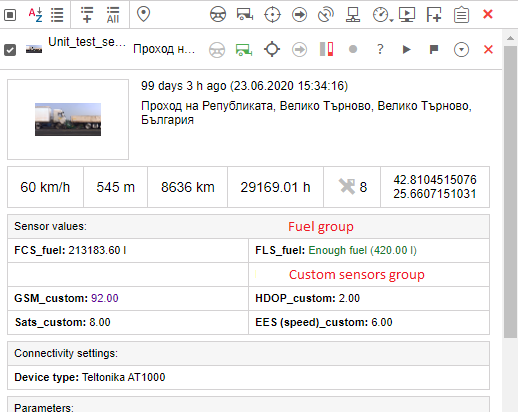Topic: Feature Request: Sensor Groups
We would like the ability to group sensors under a unit, with the capability to collapse/expand these sensor groups.
Somewhat similar to some of the other items with their groupings, Units, Drivers, Geofences, etc.
Use Case:
We are working on the integration of a new sensor with GPS tracking hardware.
We can connect up to 16 physical sensors to a GPS tracker, and each of these physical sensors has 8 additional sensor/param capabilities, so that makes a total of 16*8 = 128 sensors that we can add per GPS tracker into
If we want to do a real-time view, we could go to Monitoring tab, and expand out the sensor values, however now we have 64 rows of sensors, so being able to group the sensors would be great.
We also have existing applications that could benefit as we have OBD trackers that have 20+ sensors, and being able to group them would help, e.g. sensors for fuel, sensors for mileage, sensors for ECU data, etc.
We have had several customers ask about this, however, we have not lost any business to this. We are developing a new product that will utilize these 128 sensors, however we would like a better view in Wialon to be able to view them.

